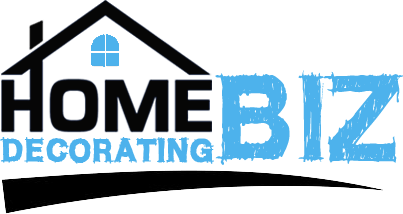There’s no secret that the real estate rental market is super-hot these days. A recent Harvard University housing study uncovered a soaring rental market that broke out across the United States during the second year of the pandemic, and it’s never looked back. Owning rental property can be an excellent financial move for your wallet. But before you bring tenants in, a number of experts have some advice on how to prep your home as a top-notch rental property.
1. Safety First
You could have the most beautiful home inside and out, but is it a safe property? That is something you need to carefully examine. Smoke alarms and carbon monoxide detectors are essential in any building, especially a home. Did you know that about three out of five deaths occur in houses without a working smoke alarm? Fire safety professionals also recommend having an easily accessible fire extinguisher in the home.
2. Modern Updates
People who want to rent your home are seeking an attractive property. Take the time to honestly look at your interior and make updates if needed. Give the carpets a fresh shampoo. If your walls look dull, a new coat of paint can make quite the transformation. When it comes to your kitchen, folks expect the latest appliances along with contemporary countertops and freshly painted cabinets.
If you’re lacking roomy kitchen storage, you can order ready-to-assemble or RTA cabinets. The kitchen is the heart of any home, and beautiful upgrades are something people strongly consider when deciding to rent.
3. Thorough Inspection
Does your house have curb appeal? In other words, is the landscaping in good shape, with the bushes and lawn neatly trimmed? Is your driveway hardtop free of cracks? Are there missing roof shingles, etc.? Some of these imperfections may not seem like a big deal, but future tenants look carefully. They won’t be attracted to clogged gutters, peeling house paint or other issues. Make sure that things look clean and are repaired and working well. Even a new doormat for the front door entryway can make a difference.
4. Furniture and Fixtures
Interior designers also have some recommendations before you bring tenants inside the home. Good lighting is something that draws individuals in when seeking a home rental property. Check all of your outdoor fixtures to see if they function and enhance your property. Inside, you can replace bulbs with higher wattages for that extra brightness that allows a room to appear open and inviting.
Evaluate your furnishings. If you own something valuable or an antique and don’t want it to be possibly stolen or broken, then remove it before renting the property. Additionally, does your interior look comfortable? Could you use an extra chair or couch or side table? Consider adding new toss pillows and throws to make your area cozier.
Is your kitchen space old-fashioned-looking? Consider a switch to the elegance of the Shaker style cabinet trend. It’s crucial to choose pieces that will last a long time and stay in style.
5. Pest Control
This one is easy to overlook, but think about it. Bugs and bees are something wonderful in nature. But if any of these insects happen to make their way inside your home, life can get instantly annoying and difficult for your tenants. Bugs often infiltrate a home through foundation cracks, walls, poorly sealed doors, etc. Ants are the number one nuisance in the home, according to the National Pest Management Association.
Pest control pros advise scheduling an inspection. They can evaluate how your home is doing, and if there are any pests, they can spray and eliminate the problem.
6. Insurance Advice
Here is another important aspect when prepping your home to become a rental property. A standard homeowner’s insurance policy doesn’t cover rental situations. Contact your insurance agent to talk about your plans and consider swapping out your homeowner’s insurance policy for a landlord insurance policy.
Your insurance agent will tell you that the risk is different if you’re not living in the house year-round. No one wants to think about fire or water damage occurring or natural disasters striking, or even tenants’ negligence happening. Adequately protect yourself to cover any losses should these unfortunate incidents take place. Also, be prepared to pay a bit more as landlord insurance tends to be 15% to 20% higher than homeowner’s insurance.
7. Organization and Documentation
If you don’t like keeping track of the paperwork, then you will probably run into problems. When you’re managing a rental property yourself, the experts advise being very organized. Whatever you do, keep meticulous records. In other words, documentation is essential. Maybe for you, that means maintaining a physical file; for others, that can come down to digital records.
Professionals can help you stay abreast of the paperwork, so hire one if you’re unable to do the record-keeping. For example, retain copies of current and former leases as well as copies of any legal notices. Keep all receipts and invoices for repairs and renovations. Document and store any communication between tenants, maintenance professionals, etc.
With Preparation and a Little Patience, You Can Do This!
By following the professional guidelines outlined above, you, too, can become one of the many millions across the United States who have prepared their home for becoming a successful rental property. Do some research, take your time, and enjoy this new venture.




